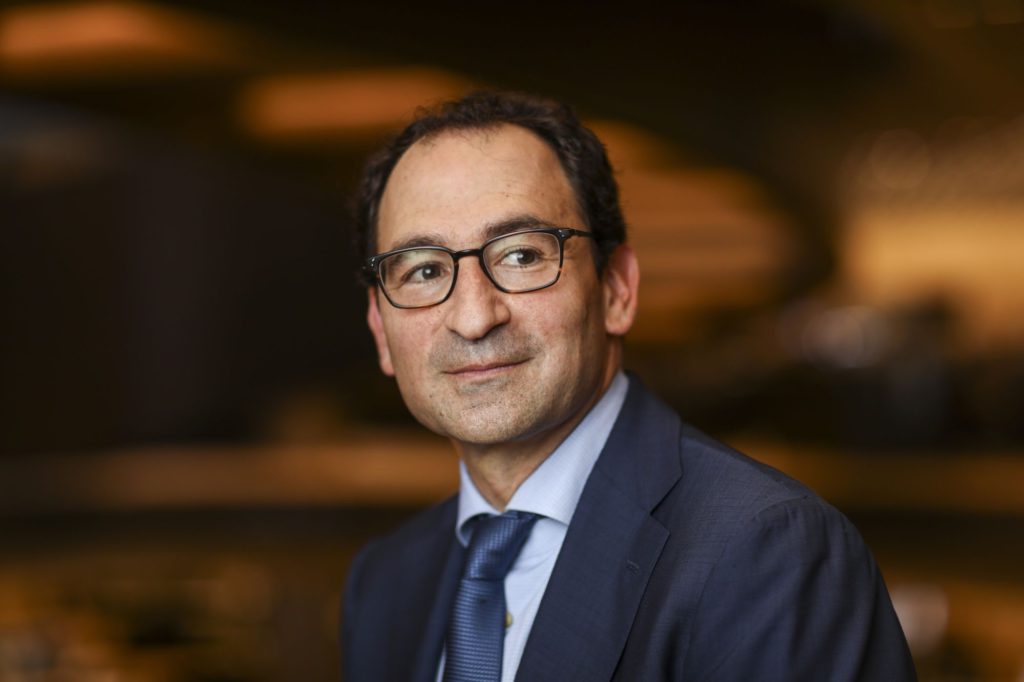One year after Blackstone Inc. Chief Executive Officer Steve Schwarzman told investors the firm would reach $1 trillion in assets under management in 2022, it’s shy of that mark.
(Bloomberg) — One year after Blackstone Inc. Chief Executive Officer Steve Schwarzman told investors the firm would reach $1 trillion in assets under management in 2022, it’s shy of that mark.
The world’s largest alternative asset manager commanded $975 billion at the end of last year, up from $951 billion in the prior quarter, short of the milestone its senior leaders once thought was just around the corner. The target was originally set for 2026, but was accelerated amid a market boom.
Now the private equity giant is feeling the weight of higher interest rates on its valuations of some past investments and confronting an era of investor caution as it tries to gather cash for new bets. President Jon Gray said he wasn’t disappointed over missing the target, expressing confidence that investors will entrust more money if the firm delivers.
“I’m most focused on returns,” Gray, 52, said in an interview. “Inflows follow performance.”
The tougher environment dragged down distributable earnings 41% to $1.3 billion as the firm’s dealmakers slowed sales in the three final months of 2022, according to the company’s quarterly earnings report on Thursday. That amounted to $1.07 a share, topping the average analyst estimate of 94 cents. The company declared a dividend of 91 cents a share, short of Bloomberg’s forecast of $1.02.
Last year “represented the most challenging market environment since the global financial crisis,” Schwarzman told analysts in a conference call.
BREIT Backlog
Blackstone — a heavyweight investor in everything from consumer brands to transmission lines to student dorms and apartments — is first among the largest private equity firms to report results for the period. That makes it a bellwether for the broader industry and the economy.
The New York-based firm grew rapidly in an era of low interest rates as pensions, endowments and wealthy savers flocked to the promise of higher returns from private equity and real estate. But the Federal Reserve’s battle with inflation is giving individuals more investment options, such as products that track rising interest rates. Economic uncertainty is limiting institutional appetite for private equity investments that can take years to mature and be hard to sell.
Blackstone took in $28 billion of net inflows in the quarter, compared with $147 billion a year earlier.
Redemptions from the iconic $69 billion Blackstone Real Estate Income Trust contributed to outflows. The vehicle is a closely watched barometer of investor sentiment. BREIT limited withdrawals from the fund in December to prevent forced selling and it has since received a pledge of $4.5 billion from the University of California, helping to bolster confidence.
In response to analysts’ questions Thursday, Gray said a chunk of redemptions in January involved unfulfilled requests from November and December. He added that some investors are now seeking larger withdrawals, knowing that all of them won’t be fulfilled.
The backlog will be resolved eventually, Gray said, without providing a timeline.
Changes to the timing of how BREIT books profits in 2022 also made the decline in distributable earnings steeper.
Real estate bets took hits in the fourth quarter, with opportunistic wagers depreciating 2% and core investments down 1.5%.
Read more: Blackstone’s $69 Billion real estate fund hits redemption limit
Still, the firm held about $371 billion in so-called “perpetual” pools, such as BREIT, up 18% from a year earlier.
Another bright spot was corporate private equity, which appreciated by 3.8%, more than other investment units.
Individual investors remain an important driver of growth, Gray said. Assets managed for individuals and private bank channels totaled $239 billion at the end of 2022, up 25% from the year-ago period, executives said.
Shares of Blackstone rose 3.8% to $92.24 at 10:44 a.m. in New York, extending their gain for January to 24%. The stock tumbled 43% last year.
Distributable earnings for the full year rose 7% to $6.6 billion. The firm carved out $1.8 billion from successful investments for dealmakers and executives. That’s 16% more than in the prior year. Carried interest is a longstanding perk of working in the industry.
“You don’t get any carry if you don’t sell things and deliver for customers,” Gray said.
(Updates with BREIT details starting in 10th paragraph.)
More stories like this are available on bloomberg.com
©2023 Bloomberg L.P.










